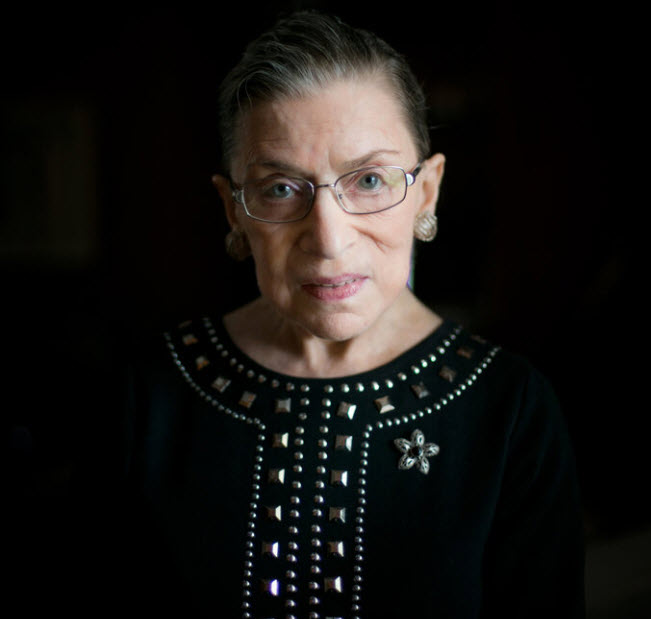I met RBG only once, but the impact has lasted ever since.
In third year of law school, I participated in Moot Court. Our hypothetical case (before the “US Supreme Court”) pitted a Tennessee school board with an all-male “academic” track against a 17-year-old girl. It turned on whether the Equal Rights Amendment to the Constitution had been effectively ratified.
The scenario—not far removed from historical fact—was that at one point exactly the required number of states (38, or three-quarters) had voted to ratify the ERA but that three states had reversed course and voted to rescind their initial approval. The legal questions were the threshold one of whether the states’ actions vis-à-vis a Constitutional Amendment were even reviewable by the Supreme Court, and if so then of course whether the ERA had been effectively adopted or not.
Research and writing one’s “appellate brief” extended over the entire fall semester, and oral arguments followed in the spring.
For the finals of oral argument, Stanford Law had evidently exercised its drawing power because one of the three judges was RBG herself.
For me, the argument itself passed in a hazy adrenaline rush, lost to memory. What I do remember of that day is RBG coming up to me in the reception following, cutting straight to what she had to say: “I wish every lawyer who appeared before me wrote like you do!” Of course, I thanked her profusely, and probably blushed to match, but it took my favorite Professor to help me understand what she was driving at.
“She means you don’t write like a lawyer.”
I took that counsel to heart then, and have subscribed to it ever since.




A truly remarkable human being. My personal memory is of a summer when both of us were on the faculty of a summer program for foreign lawyers at Columbia in the 1960s. A joy to talk with.
And isn’t it fascinating what pleasure one can take from even a small encounter with a person of greatness.